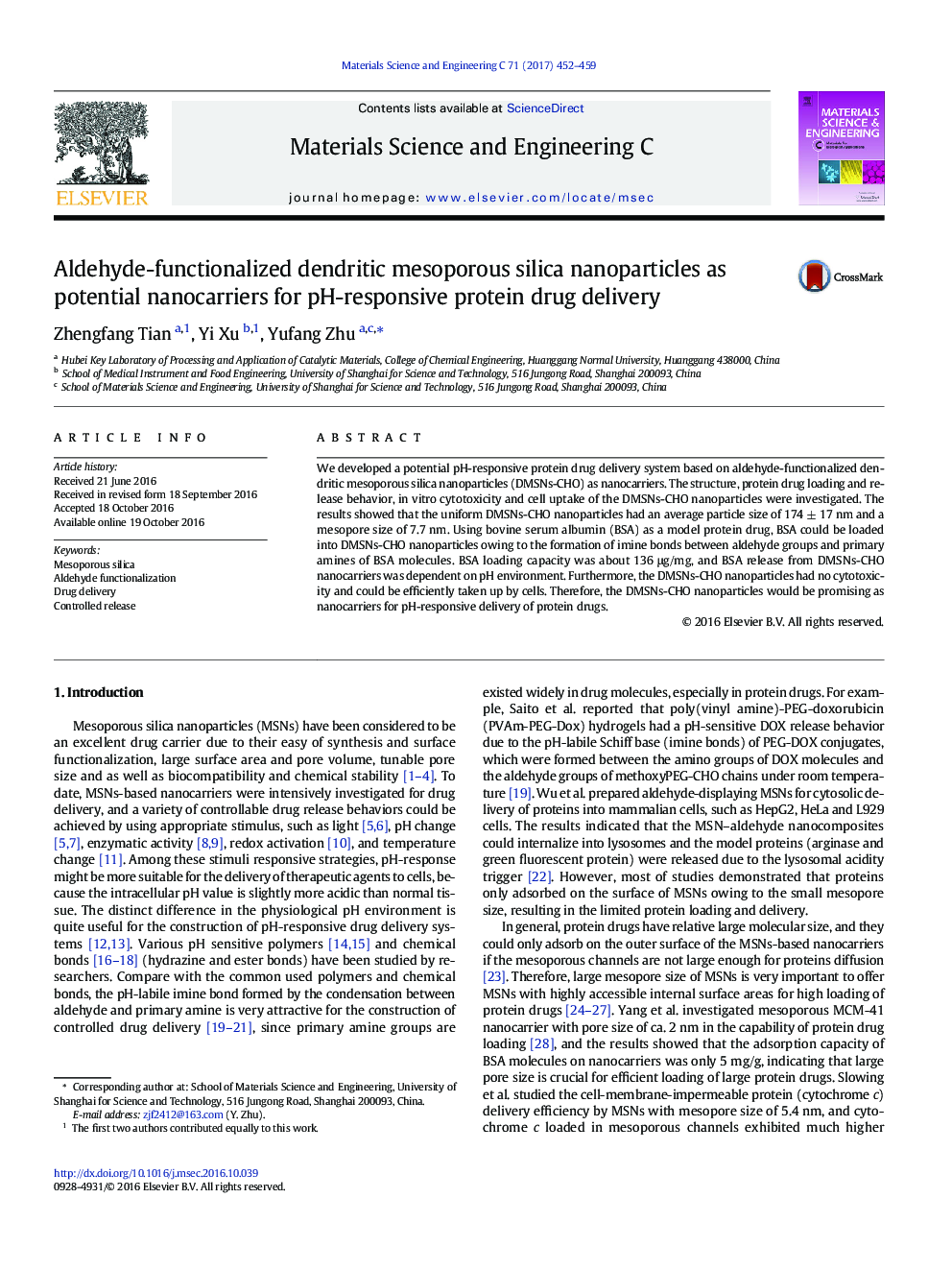| Article ID | Journal | Published Year | Pages | File Type |
|---|---|---|---|---|
| 5434650 | Materials Science and Engineering: C | 2017 | 8 Pages |
â¢A potential pH-responsive protein drug delivery system was developed based on mesoporous silica nanoparticles (DMSNs-CHO).â¢DMSNs-CHO nanoparticles had no cytotoxicity and could be efficiently taken up by cells.â¢Protein drugs could release from DMSNs-CHO nanoparticles triggered by acidic environment.
We developed a potential pH-responsive protein drug delivery system based on aldehyde-functionalized dendritic mesoporous silica nanoparticles (DMSNs-CHO) as nanocarriers. The structure, protein drug loading and release behavior, in vitro cytotoxicity and cell uptake of the DMSNs-CHO nanoparticles were investigated. The results showed that the uniform DMSNs-CHO nanoparticles had an average particle size of 174 ± 17 nm and a mesopore size of 7.7 nm. Using bovine serum albumin (BSA) as a model protein drug, BSA could be loaded into DMSNs-CHO nanoparticles owing to the formation of imine bonds between aldehyde groups and primary amines of BSA molecules. BSA loading capacity was about 136 μg/mg, and BSA release from DMSNs-CHO nanocarriers was dependent on pH environment. Furthermore, the DMSNs-CHO nanoparticles had no cytotoxicity and could be efficiently taken up by cells. Therefore, the DMSNs-CHO nanoparticles would be promising as nanocarriers for pH-responsive delivery of protein drugs.
Graphical abstractDownload high-res image (197KB)Download full-size image
